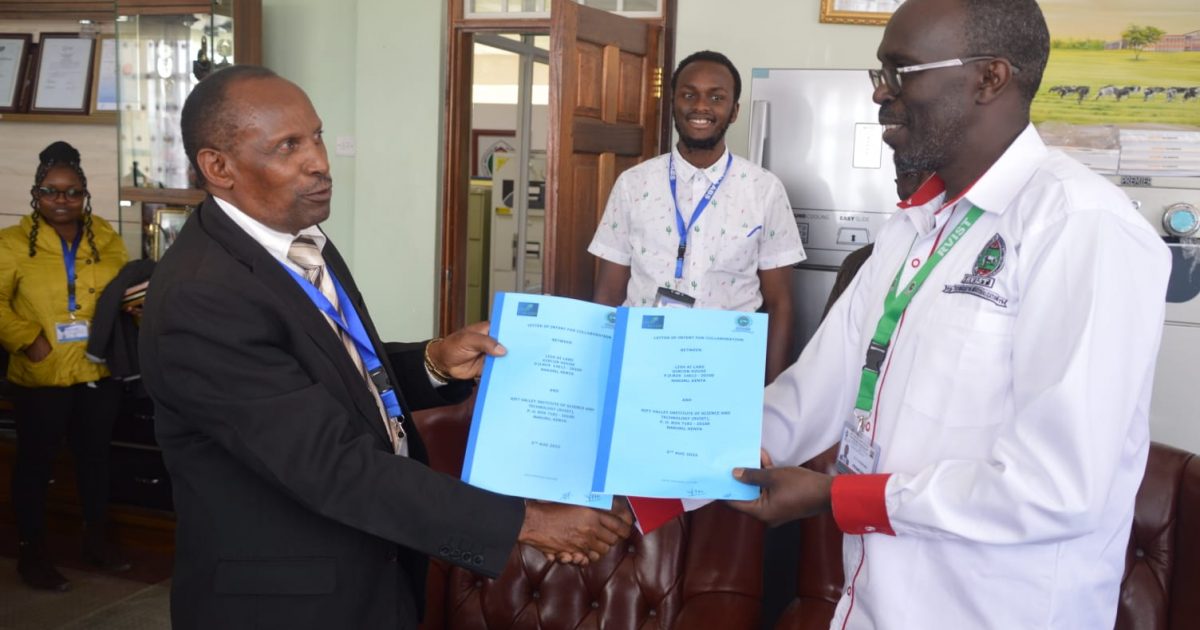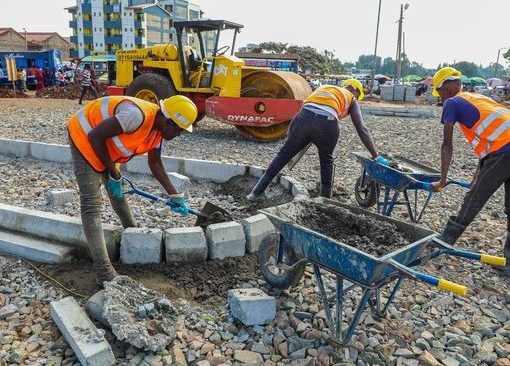Rift Valley National Polytechnic (RVNP) has inked a deal with Data Annotation and Model Validation Solutions Company, Lish AI Labs, to train at least 1,500 youth and women on computer vision and data labelling services, a field in high demand by Artificial Intelligence (AI) developers and Machine Learning (ML) engineers globally.
Lish AI Labs Director Mr Dan Njiriri said after the training, the beneficiaries will be linked to job opportunities across the world.
The training programme will cover a variety of areas, including computer vision, machine learning, and data annotation.
Participants will also receive soft skills training on topics such as communication, teamwork, and problem-solving.
Mr Njiriri announced that the first and second cohorts of over 300 beneficiaries who include current and former students of RVNP and youth and women from the surrounding community who have already undergone training are now engaged by various foreign firms to carry out data annotation or data labelling, which is teaching a machine to identify things and activities and react to them.
The activity also involves the process of labelling data with relevant tags to make it easier for computers to understand and interpret.
The data can be in the form of images, text, audio or video and data annotators are required to label it as accurately as possible.
In the modern age of advanced technologies, Mr Njiriri explained that, AI systems are relying on vast amounts of accurately labelled data to help machines learn and make informed decisions and this is where annotators come in.
In essence, data annotation acts as the bridge in the gap between raw data and intelligent algorithms that aid machines in aspects such as computer vision and natural language processing.
The Director said the trainings being conducted at RVNP’s Jitume Lab are aimed at ensuring Kenyans are getting the skills and being open to opportunities in the global space.
He said this will enable them to exploit opportunities available online and earn a sustainable income.
“We need to build a digitally enabled workforce if we are going to achieve and realise the dream of a digital economy,” he said.
Lish Al Labs has entered into similar arrangements with Jeremiah Nyagah Technical Training Institute and Runyenjes Institute both based in Embu County.
It has also entered into the same arrangement with Eldama Ravine Vocational Centre and Rift Valley Innovation Centre both situated in Baringo County.
Under the arrangement Konza Technopolis has committed to providing 100 computers to all Technical Vocational Education Training Institutes (TVETS) to facilitate training in AI.
Mr Njiriri confirmed that so far 116 TVETS in the country have received the gadgets from Konza Technopolis.
Mr Njiriri explained that to get a training placement all that is needed is for one to be fluent in both written and spoken English, and have basic computer skills.
Recruits are trained on general office applications, web research skills, and foundational knowledge of AI and data annotation.
“We train them to pay keen attention to detail because the AI models we are training require highly precise data inputs and quality is extremely important to the clients,” said the Director.
According to Mr Njiriri, by training the Country’s youth, Lish Al Labs is actively working to position Kenya as an ideal investment destination for players in the global AI value chain.
He said the company’s efforts are aligned to the Government’s Bottom-Up Economic Transformation Agenda (BeTA) touching on the Digital Economy Transformation.
According to recent research by the McKinsey Global Institute on generative AI and productivity, the AI value chain can generate value equivalent to $2.6 trillion to $4.4 trillion in global corporate profits annually.
RVNP Principal Mr Sammy Chemoiwa said the over 300 individuals who have already undergone training were working on various projects for international firms executing tasks that include labelling images and videos for machine learning algorithms as part of upstream AI data building.
He disclosed that they were earning between Sh 9,000 to 20,000 per week.
He said the initiative is part of RVNP’s mission to expand opportunities for the underserved through the digital economy in Kenya and helping the surrounding community lift itself out of poverty and build sustainable careers in the tech industry.
Mr Chemoiwa indicated that the digital economy has emerged as a transformative force globally, and Kenya is well positioned to contribute to creating a more inclusive AI ecosystem where everyone has a chance to make a meaningful impact.
He indicated that youth and women around the institution have a potential of making Sh 5 million per week by offering AI services.
“The heart of our mission lies in harnessing the potential of marginalized communities and providing them with the tools and skills they need to thrive in the rapidly evolving digital landscape. By focusing on underserved youth and women in Nakuru we aim to bridge the digital divide and pave the way for sustainable economic growth,” added the Pprincipal.
He went on “Through this initiative, we are not only creating employment opportunities for Kenyan youths but also ensuring that Kenya plays a significant role in shaping the future of AI development. Together, we’re fostering innovation, creating opportunities, and building a brighter future where Kenyan talent fuels the global AI revolution”
The principal noted that Kenya is well-positioned to contribute to creating a more inclusive AI ecosystem where everyone can make a meaningful impact.
He assured that trainers at Jitume Lab were undertaking “a moral, ethical and societal duty” to protect people from the dangers posed by artificial intelligence.
Mr Chemoiwa observed that human oversight is crucial to preventing the weaponisation or misuse of this technology, which has applications in everything from military intelligence to medical diagnosis to making art.
“To provide order and stability in the midst of global technological change, I firmly believe that we must be guided by a common set of understandings among nations. Like any other tool AI is subject to its user’s intention and can be used to deceive, misinform or hurt people,” observed Mr Chemoiwa.
Faith Chepkoech, one of the beneficiaries of the first cohort stated that data annotation is critical for building domain-specific AI applications, noting that every industry has its own unique requirements and context that necessitate specific tailored labelling.
“In the automotive industry, for example, data labelling allows AI-driven motor vehicles to recognize and understand road signs, pedestrians, other vehicles and objects, ensuring the safety and efficiency of human-driven vehicles,” she stated.
The beneficiaries she explained were offering data annotation and validation for machine learning algorithms in a range of US based industries that include automotive, biotechnology, agriculture, virtual reality, manufacturing, and e-commerce.
Ms Cheptoo observed that countries that have adopted this technology are optimizing crop yields and improving healthcare diagnostics, transportation, logistics and more.
According to Emmanuel Juma, another beneficiary, For Africa to become a global solutions provider, it must leverage AI to turn poverty into an opportunity.
And this, he added, requires AI to boost access to quality education and skills development.
Mr Juma observed that the application of AI in real-world scenarios is more important than theoretical discussion. Africa, he said, must focus on practical use cases and develop AI-driven solutions.
By Anne Mwale




